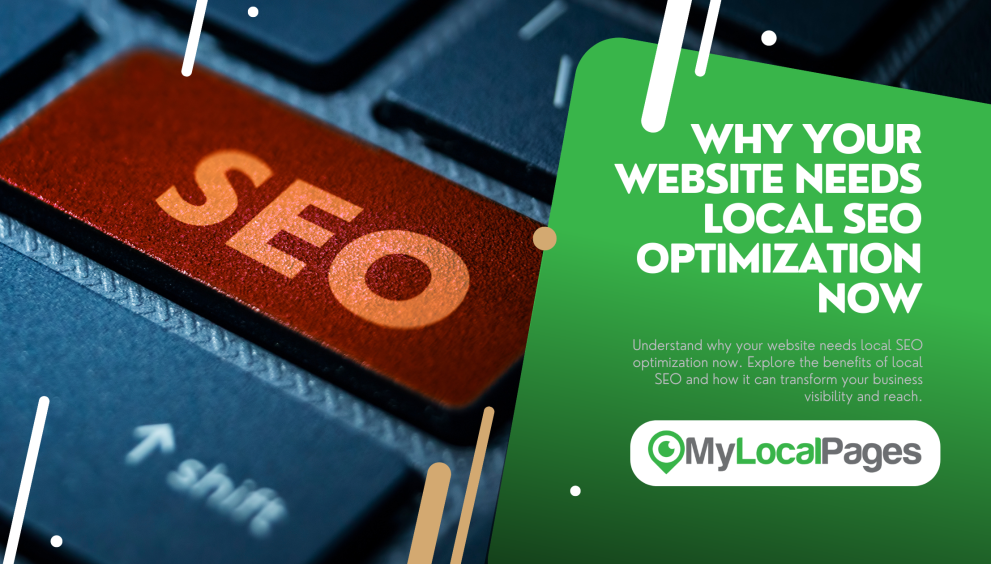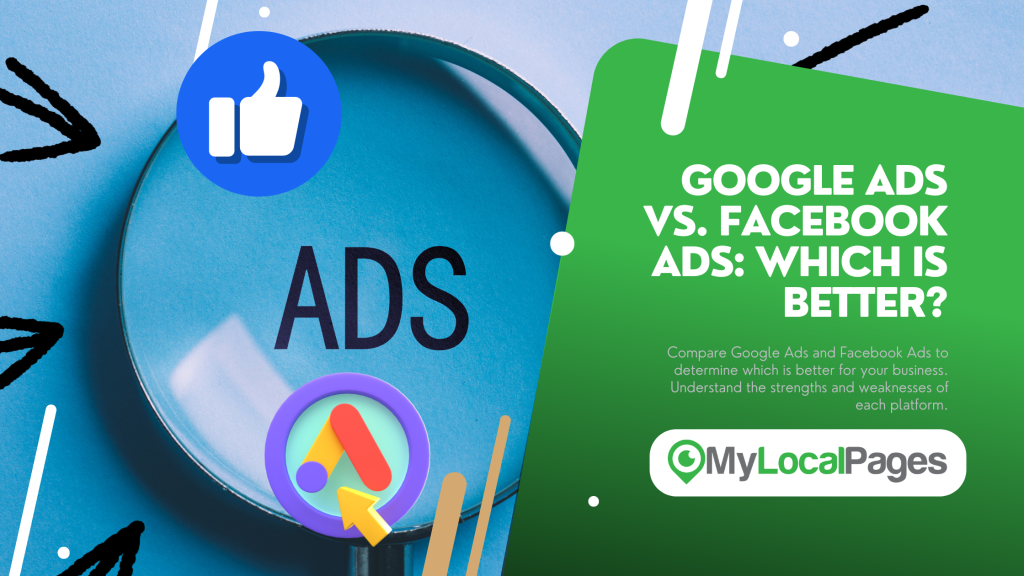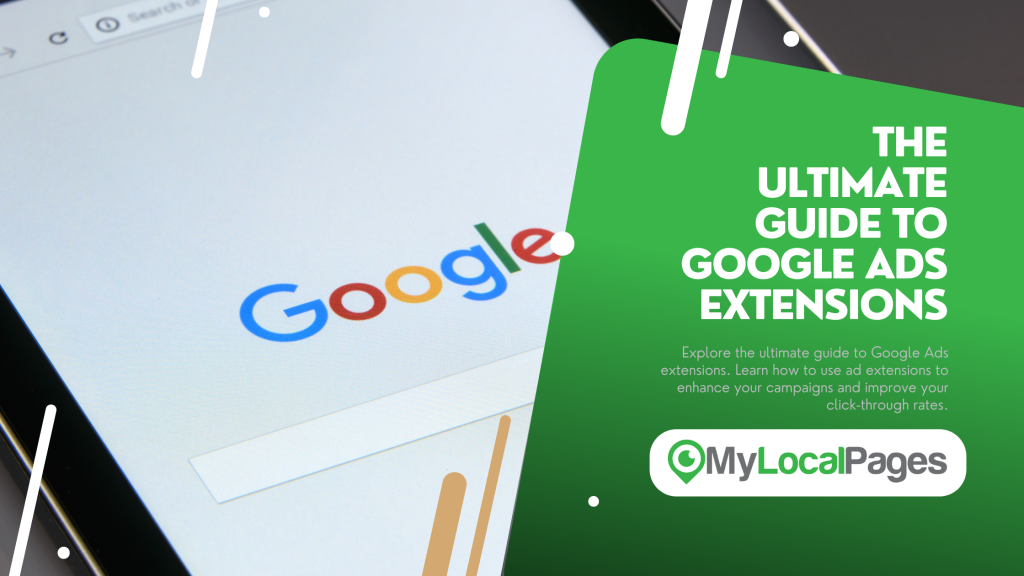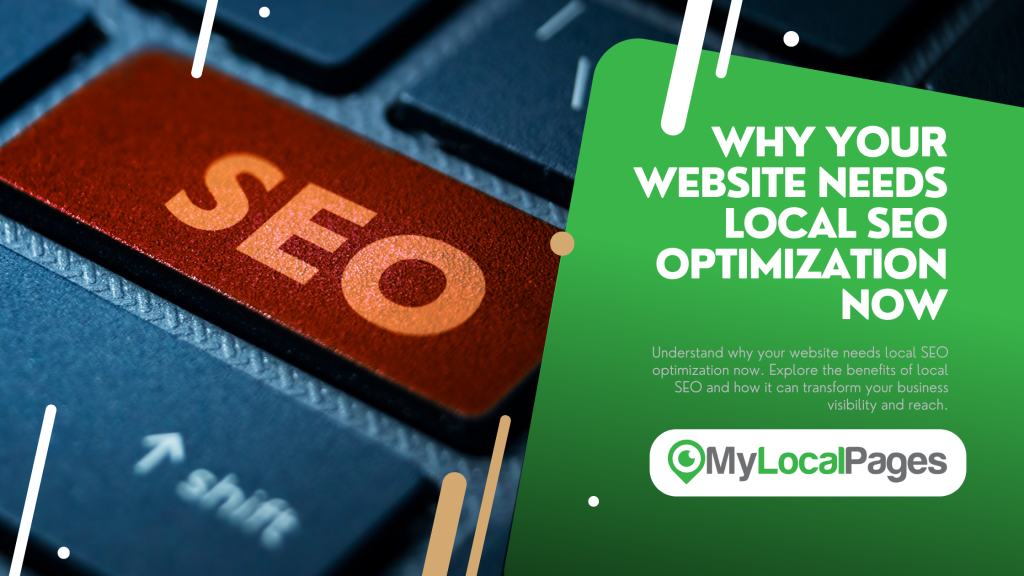Why Your Website Needs Local SEO Optimization Now

In today’s digital age, a robust online presence is no longer a luxury – it’s a necessity. But for businesses with a brick-and-mortar location or serving a specific region, simply having a website isn’t enough. You need to be discoverable by local customers searching for the products or services you offer. This is where Local SEO (Search Engine Optimization) comes in.
The Rise of Local Search: Why Location Matters More Than Ever
Think about your own online behavior. How often do you search for businesses near you with terms like “best [service] near me” or “[product type] + [city]”? According to Moz, a whopping 46% of all Google searches have local intent. This means nearly half of all online searches are people actively looking for businesses in their vicinity.
If your website isn’t optimized for local search, you’re missing out on a massive potential customer base. Local SEO helps bridge the gap between online searches and physical visits to your business. By implementing strategic optimization techniques, you can ensure your website shows up prominently in local search results, giving you a significant edge over competitors.
Unleashing the Power of Local SEO: Benefits You Can’t Ignore
Local SEO isn’t just a fad; it’s a powerful tool that can transform your business in several ways:
- Increased Website Traffic: Local SEO optimization attracts qualified leads actively searching for what you offer in your local area. This translates to targeted website traffic with a higher conversion potential.
- Enhanced Brand Visibility: Local SEO helps your business rank higher in local search results, putting your brand name in front of potential customers who are more likely to choose you over unseen competitors.
- Improved Customer Engagement: Local SEO allows you to connect with local customers on a deeper level. You can showcase your unique selling points, highlight positive customer reviews, and provide valuable local content, fostering trust and engagement.
- Boosted Credibility: A well-optimized local SEO strategy reinforces your business’s legitimacy in the eyes of potential customers. Ranking well in local searches indicates you’re a reliable and established player in the local market.
- Measurable Results: Local SEO allows you to track your progress through analytics tools. You can see which keywords are driving traffic, how many leads you’re generating, and ultimately, how local SEO is impacting your bottom line.
Take advantage of My Local Pages’ free local SEO audit to see how your website currently performs and discover untapped potential!
Diving Deeper: Key Local SEO Optimization Strategies
Now that you understand the importance of local SEO, let’s delve into the strategies you can implement to dominate local search rankings:
1. Claim and Optimize Your Google My Business Listing
Google My Business (GMB) is a free tool that allows businesses to manage their online presence across Google Search and Maps. It’s crucial to claim and verify your GMB listing, as it’s one of the primary factors Google considers when ranking local businesses.
Here are some key optimization steps for your GMB listing:
- Complete and Accurate Information: Ensure your business name, address, phone number (NAP), website URL, and category are accurate and consistent across all platforms.
- High-Quality Photos: Showcase your business with captivating photos of your storefront, team, and products or services.
- Positive Customer Reviews: Encourage satisfied customers to leave positive reviews on your GMB listing. Positive reviews build trust and improve your local ranking.
- Regular Posts and Updates: Regularly update your GMB listing with posts about new offers, events, or special promotions. This keeps your profile active and engages potential customers.
Need help optimizing your Google My Business Listing? Contact My Local Pages’ team of SEO experts for assistance!
2. Master the Art of Local Citations
Citations are online mentions of your business name, address, and phone number (NAP) across various directories and websites. These citations act as digital verification signals for search engines, letting them know your business is legitimate and has a consistent online presence.
Here’s how to build a strong local citation profile:
- Claim Listings on Local Directories: Search for relevant local directories in your area and claim your business listings, ensuring your NAP information is consistent.
- Industry-Specific Directories: Explore industry-specific directories related to your business and claim your listings there too.
- Online Review Platforms: Encourage customers to leave reviews on platforms like Yelp, Angie’s List, or industry-specific review websites.
3. Craft Compelling Local Content
Content is king, and local SEO is no exception. Creating high-quality, locally relevant content establishes your business as a thought leader and a valuable resource for the community.
Here are some local content creation ideas:
- Blog Posts: Write informative blog posts targeting local keywords like “[service] tips for [city]” or “[product] buying guide for [city] residents.”
- Local Events and News: Highlight your participation in local events, charity initiatives, or community sponsorships.
- Customer Testimonials: Showcase positive customer testimonials and success stories to build trust and social proof.
- Local Guides and FAQs: Create helpful guides or answer frequently asked questions (FAQs) specific to your local area and target audience.
Not sure where to start with local content creation? My Local Pages offers content marketing services to craft engaging and SEO-optimized content for your business.
4. Leverage the Power of Local Keywords
Keywords are the search terms people use to find businesses online. For local SEO, your focus should be on incorporating local keywords into your website content.
Here are some tips for local keyword research:
- Target Location-Specific Keywords: Integrate your city, town, or neighborhood name into your keywords. For example, “plumber + [your city]” or “[service] near + [zip code]”.
- Long-Tail Keywords: Focus on longer, more specific keyword phrases that reflect the specific needs of local searchers. For example, “best + weekend brunch spots + downtown + [city]”.
- Utilize Keyword Research Tools: Several free and paid keyword research tools can help you identify relevant local keywords with high search volume and low competition.
My Local Pages’ SEO experts can conduct in-depth keyword research to identify the most impactful keywords for your local business.
5. Make Your Website Mobile-Friendly
In today’s mobile-first world, a website that isn’t optimized for smartphones and tablets is a major disadvantage. Local searches are predominantly conducted on mobile devices, so ensuring your website offers a seamless user experience on all devices is crucial.
Here are some mobile optimization considerations:
- Responsive Design: A responsive website design automatically adjusts its layout to fit the screen size of the device being used.
- Fast Loading Speeds: Mobile users are impatient. Ensure your website loads quickly on mobile devices to avoid bounce rates.
- Click-to-Call Functionality: Make it easy for mobile users to contact your business by incorporating click-to-call buttons.
Is your website mobile-friendly? Let My Local Pages conduct a free mobile website audit to assess its performance and recommend improvements.
Reap the Rewards of Local SEO
By implementing these local SEO strategies, you can significantly improve your online visibility and attract more local customers. Remember, local SEO is an ongoing process, but the results are well worth the effort. A well-optimized local SEO strategy can transform your website into a powerful lead generation machine, driving consistent growth for your local business.
Ready to take your local SEO to the next level? Contact My Local Pages today! Our team of SEO specialists will help you develop and implement a comprehensive local SEO strategy to dominate local search results and achieve your business goals.











